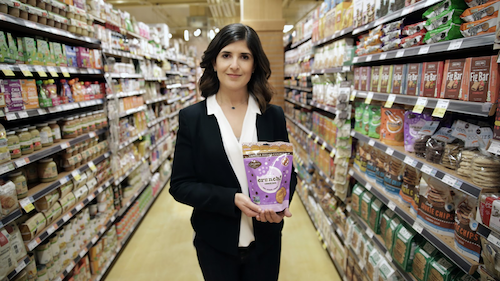Five Ways Supplier Diversity is Changing the Store

Over the last decade, retail has seen an upswing in the number of products lining store shelves that hail not from the big name CPG players, but instead smaller, independent suppliers that have carved out a niche. As more and more consumers are demanding new and innovative products — and want them on the shelf yesterday — retailers are responding. Many have implemented supplier diversity programs into their overall strategy, and they’ve seen a growth trajectory because of it. Supplier diversity is changing the store for the better, and here are five reasons why:
- Supplier diversity recruits a new generation. Millennials are the largest living generation, and one of the things that tops their “must haves” is transparency. They want to see exactly what is happening during any interaction at any point from beginning to end, and retail is no different. Retailers that can show they’re committed to partnering with suppliers who are minority owned, women owned, creating sustainable products, or otherwise tap into a facet that meshes with the millennial ethos, are better able to broker a more trusting, reliable relationship with Gen Y.
- Supplier diversity makes retailers more interesting. It’s easy to let familiar, comfortable supplier relationships make up the bulk of products in a store — if it’s worked for this long, who’s to say it won’t work well into the future? And that’s fine, if what you’re after is a store that doesn’t change or innovate. Diversifying suppliers disrupts a store, both in operations as well as what consumers come eye-to-shelf with as they shop the aisles, and that is often good — and needed. Seeing inventive products from new names can jar consumers from their same-list-different-week shopping excursion, and make cruising the aisles fun and engaging again.
- Supplier diversity brings in new customers. When consumers speak, retailers are all ears. And if consumers are saying they want to see more natural products, organic products, products that have regional authenticity, or any combination of these or other factors, those retailers who are open to expanding their stable of suppliers will reap the myriad benefits of consumer loyalty. More than anything, consumers want to know that someone is listening, that their voice matters. Diversifying the products they see, and the suppliers that can provide them strengthens consumer-retailer bond, and taps into new consumer groups that may have been previously underserved in the store.
- Supplier diversity creates store sustainability. Mergers and acquisitions may be prolific in CPG retail these days, but no retailer, no matter who owns whom, can be successful unless supplier diversity plays a role in their store strategy. By strategically diversifying suppliers, retailers create a competitive atmosphere, keeping prices low — good for them — while bringing in new and exciting products — good for consumers. It also keeps retailers nimble as their consumer base changes, bringing in new products to meet the needs of emerging consumer demographics as needed. This ensures a sustainable environment that changes and grows with the market.
- Supplier diversity fosters friends. A retailer’s reach goes far beyond the community it serves. When stores give smaller suppliers an opportunity to be part product line up, they’re not only helping that supplier, but they’re also helping the community where that supplier is based, keeping jobs and production turning. That banks a lot of goodwill on the retailer’s part, which in turn shines their star in the retailer’s community as well. It’s a winning picture for all players involved.
Once retail starts changing, stopping it is nearly impossible. And stopping, or even slowing, efforts around supplier diversity would be detrimental to CPG and retail, and disingenuous to consumers. As the retail ecosystem broadens, expect to see how those retailers who diversify their suppliers continue to lead across the board.
ABOUT THE AUTHOR
Nicky Jackson, Founder & CEO of RangeMe. The concept of RangeMe came to Nicky while developing a range of baby skincare products. Looking for ways to achieve fast distribution, she had the idea to create a single network to match sellers with buyers looking for products like theirs. Before launching RangeMe, Nicky worked as a Marketing Executive at Kellogg’s, Uncle Toby’s, Goodman Fielder, PepsiCo and Jim Beam.

